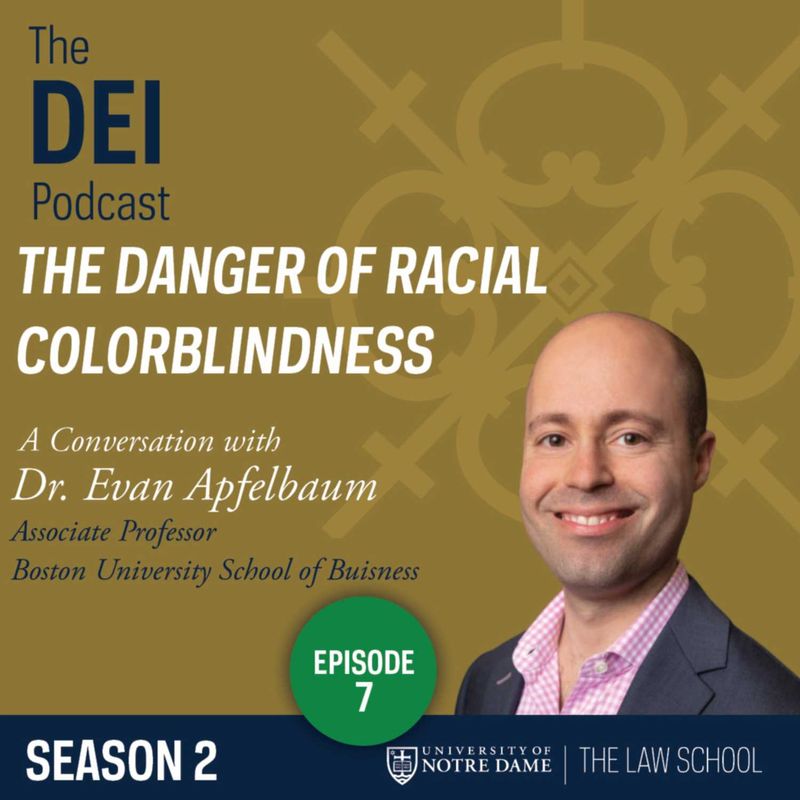The Danger of Racial Colorblindess
Monday, February 5, 2024 12:00 pm EST

Have you ever heard the phrase “I don’t see color,” when talking about race or ethnicity? Color blindness is the idea that ignoring or overlooking racial and ethnic differences promotes racial harmony and helps us treat people equally. But research shows that color blindness does just the opposite and can actually cause more harm in our interactions with people of different backgrounds.
At the Questrom School of Business at Boston University, Dr. Evan Apfelbaum researches color blindness and uses behavioral science to reveal the challenges and potential of diversity and social change. In 2012, Dr. Apfelbaum published an article entitled “Racial Color Blindness: Emergence, Practice, and Implications.” He has since published several papers on race, diversity, and how we relate to one another.
Max and Evan discuss the findings of Evan’s 2012 paper and their importance today, including why color blindness is unsuccessful as a strategy for making race relations go smoothly. They then discuss the recent Supreme Court ruling striking down affirmative action in Students for Fair Admissions vs. Harvard, which was based on the view that the law requires racial color blindness in admissions decisions.
The DEI Podcast with Max Gaston is sponsored by Notre Dame Law School and co-sponsored on ThinkND by the Black Alumni of Notre Dame, the Alumni Rainbow Community of Notre Dame (ARC ND), YoungND, Native American Alumni, Notre Dame Women Connect, Hispanic Alumni of Notre Dame, Notre Dame Senior Alumni, and Asian Pacific Alumni of Notre Dame. Register to receive emails about upcoming episodes of The DEI Podcast.



